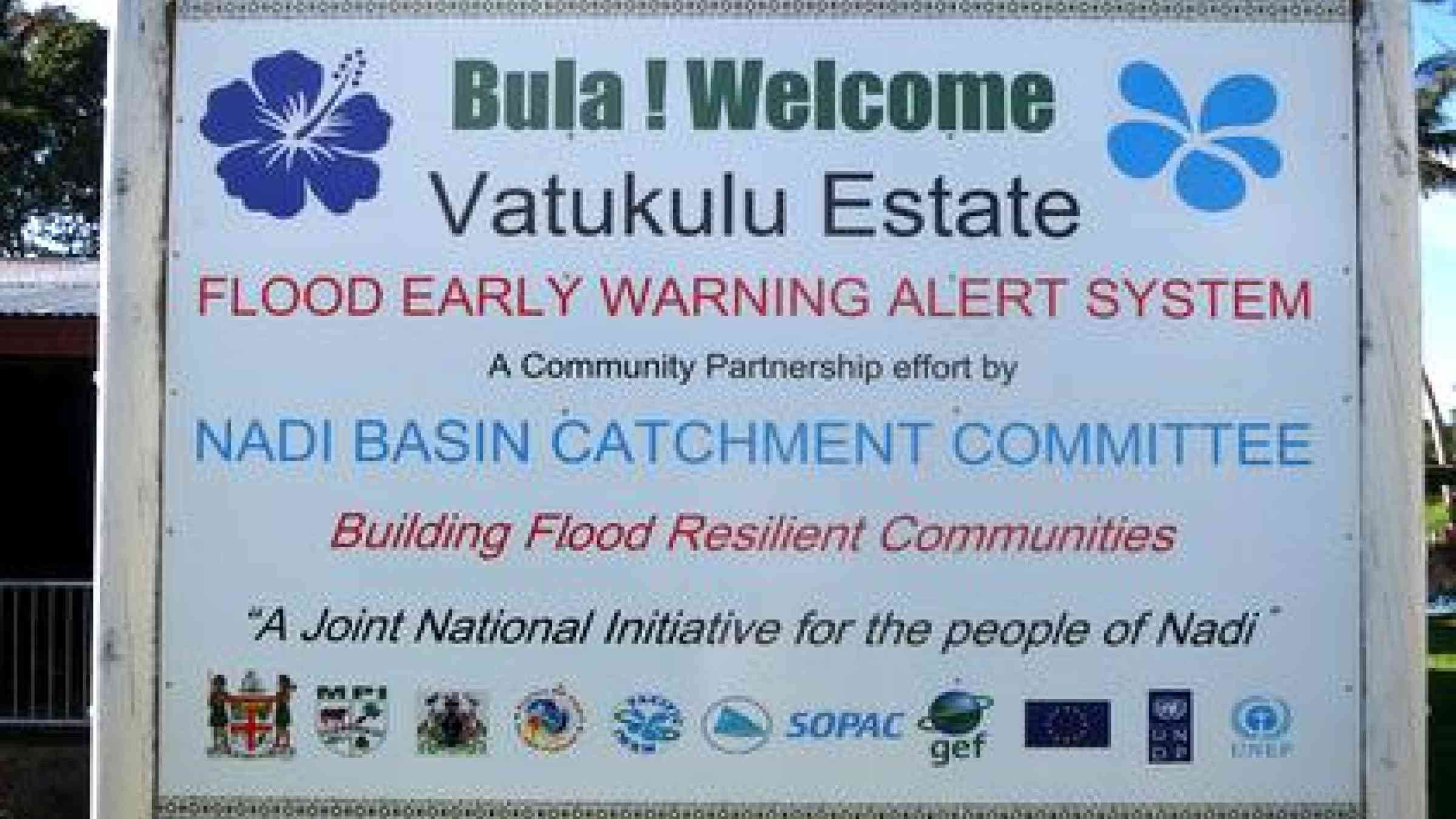'Like our ancestors, if we have the heart, we can do it'

NADI, FIJI, 9 July 2013 - Pacific government ministers today said community leadership was the key to success of innovative approaches to integrated climate change and disaster risk reduction action across the region.
Ministers challenged themselves, communities and international partners to consistently live up to the principle of local ownership to secure sustainable community and national development.
The Deputy Prime Minister and Minister for Infrastructure of Tonga, Hon. Mr Samiu Kuita Vaipulu, told a High Level Dialogue of Ministers that it is genuine partnership on the ground that consistently produces results.
"The government has a role, of course, such as providing support and equipment, but things work best when the community makes the decisions and does the work," Mr Vaipulu told the 2013 Joint Meeting of the Pacific Platform for Disaster Risk Management and Pacific Climate Change Roundtable, in Fiji.
"Communities have the knowledge and when they take the lead and don't wait for government good things happen."
The ministers agreed that integrated action was not a goal on its own but a means to strengthen the safety and resilience of vulnerable islanders.
Various approaches are emerging in the Pacific to mainstream climate change and disaster risk reduction action. Vanuatu has established a Ministry for Planning and Climate Change Adaptation, led by the Hon. Mr Thomas Laken, which is seeking to consolidate policy and planning and includes oversight of meteorology, geo-hazards, environment, energy and disaster management.
In the Cook Islands, the Ministry for Finance and Economic Management, led by the Hon. Mr Mark Brown, is strengthening systems so that the national budget can be used to 'hinge and hook' climate finance as a means of integrating and coordination the work across sectors.
"In terms of disaster risk reduction and climate funding we can't afford to have two separate cycles," Mr Brown said. "We need to break it down into one process and then it can become cross-cutting support integrated within a proper development programme for the country,"
The ministers spoke of the importance of supportive international partnership that backs national integration efforts. "We know our people better and you can support us in these efforts," Tongan Deputy Prime Minister Mr Vaipulu said.
Mr Brown, of Cook Islands, pointed to how finance ministers were working with international partners to try to reduce the complexity of climate financing.
"When I was new on the job (late 2010) I looked at one chart of the various mechanisms of climate financing and it looked like a 'spaghetti junction'. As such it was difficult to identify, difficult to access, and it was difficult to implement," Mr Brown said.
"We are working with our partners to try to simplify the funding mechanisms and from our side we are improving our domestic systems to manage development funding."
Despite the challenges ahead, Tongan Deputy Prime Minister Mr Vaipulu concluded the dialogue on an optimistic note believing that the Pacific nations should follow the lead of their communities and not wait. "We have to move and work and get things done ... Like our ancestors, if we have the heart, we can do it," he said.
The Joint Meeting is co-convened by UNISDR, the Secretariat of the Pacific Community (SPC), and the Secretariat of the Pacific Regional Environment Programme (SPREP) and is hosted and chaired by the Government of Fiji.